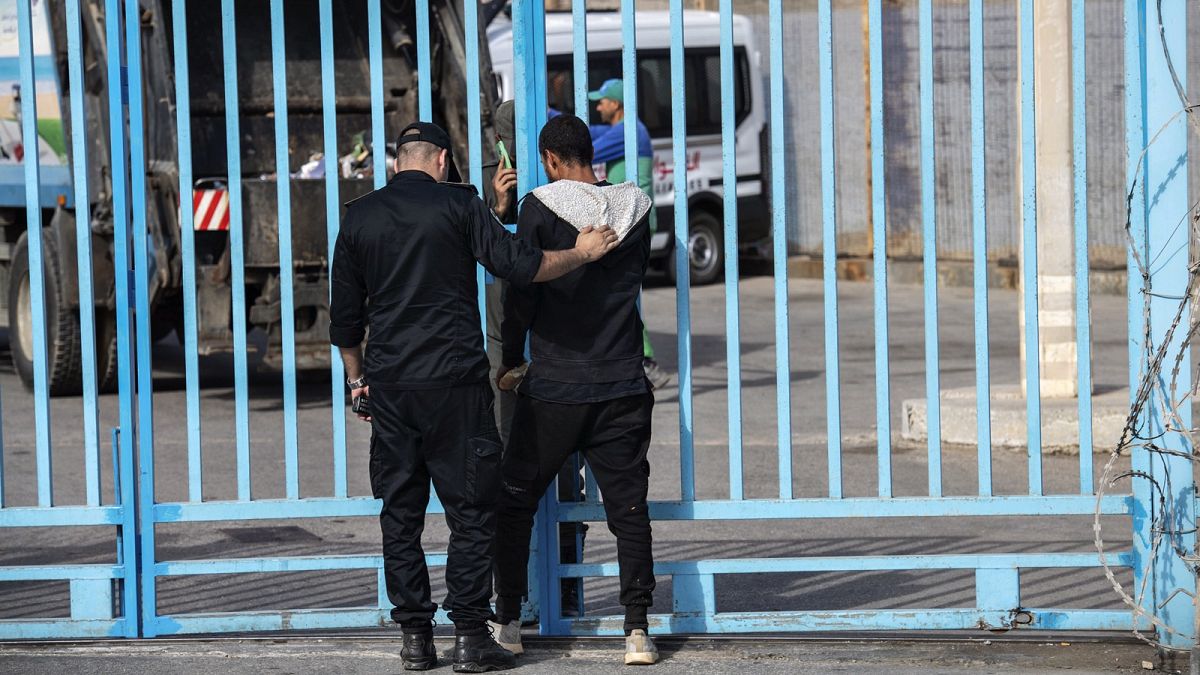The European Union has struggled to improve the deportation rate of asylum seekers whose applications have been turned down.
A group of 17 European countries has called for a “paradigm shift” in migration policy to ensure asylum seekers whose applications have been declined are effectively and speedily sent back to their home countries.
This new approach, they say, should entail “consequences” for those who are handed a return order but never leave the continent.
“People without the right to stay must be held accountable. A new legal basis must clearly define their obligations and duties,” the countries write in a non-paper seen by Euronews. “Non-cooperation must have consequences and be sanctioned.”
Governments, they continue, “must be empowered” to carry out deportations “in full respect of fundamental rights”.
The document was led by Austria and the Netherlands and endorsed by Croatia, the Czech Republic, Denmark, Finland, France, Germany, Greece, Italy, Lithuania, Luxembourg, Malta, Slovakia and Sweden. Norway and Switzerland, two non-EU member states part of the Schengen Area, also lent their signatures.
The group asks the European Commission to treat the matter “expeditiously” and put forward a “state-of-the-art framework that responds to real challenges and developments,” building upon the discussions of a working party meeting in June.
The conclusions of that meeting floated several ideas to address the bloc’s low rate of effective deportations, which stubbornly hovers around 30% with no significant change. The ideas included using trade and visa policies as “leverage” to compel countries of origin to take back their nationals after their asylum applications are rejected. (This lack of cooperation has been cited as a major reason for the low return rate.)
The June meeting also proposed the establishment of a “common European return decision” to address another recurring problem: member states sometimes do not recognise the return orders issued by another member state.
These specific proposals, however, are not mentioned in the new non-paper, which mostly serves as a call-for-action on the Commission and a display of strong political support: the 17-strong group encompasses all regions of Europe, from Scandinavia to the Mediterranean, and governments from the hard right to the centre left.
The joint call comes as interior ministers are set to gather in Luxembourg on Thursday, the first meeting of its kind since Germany re-introduced controls in all its land borders, Hungary threatened to instrumentalise irregular migrants against Belgium, and the Netherlands asked for an opt-out clause of the EU asylum rules.
Migration should also feature on the agenda of a two-day summit of EU leaders next week.
The rapid succession of events has raised serious concerns about the viability of the Schengen Area and the New Pact on Migration and Asylum, the legislative overhaul the bloc completed in May.
The New Pact foresees provisions to close the gap between the asylum and the return procedures, but, as the non-paper reflects, member states want a separate piece of legislation to deal with the issue of deportations.
A proposal to reform the 2008 Return Directive has been stuck in the European Parliament since 2019. For the 17-country group, a brand-new text is now needed.
In the guidelines for her second term, European Commission President Ursula von der Leyen has promised a “new common approach on returns, with a new legislative framework to speed up and simplify the process, ensure that returns take place in a dignified manner, digitalise case management and ensure that return decisions are mutually recognised across Europe.”
Read the full article here
